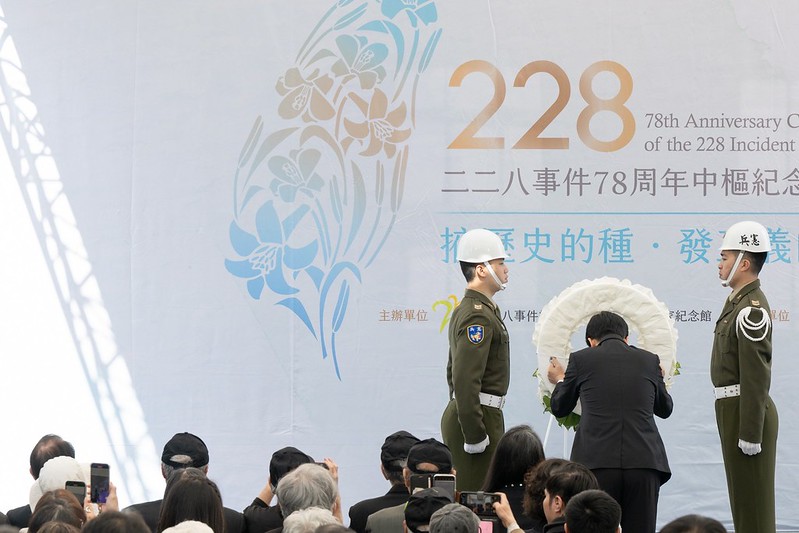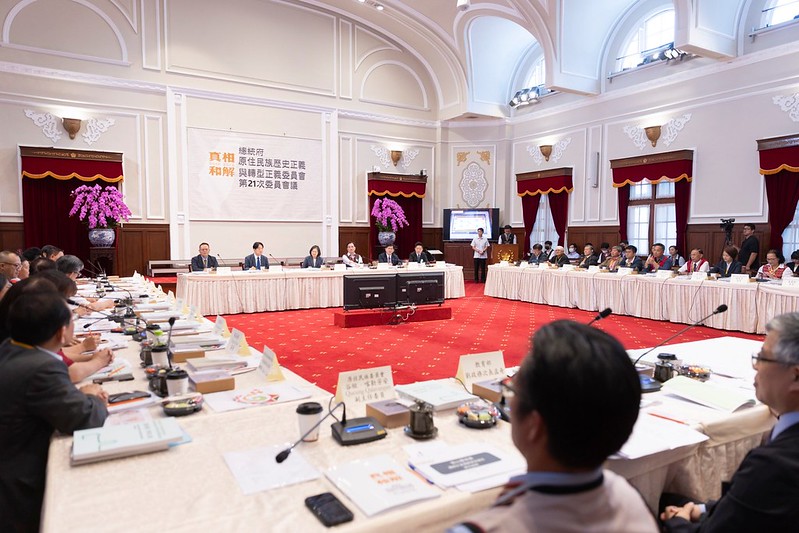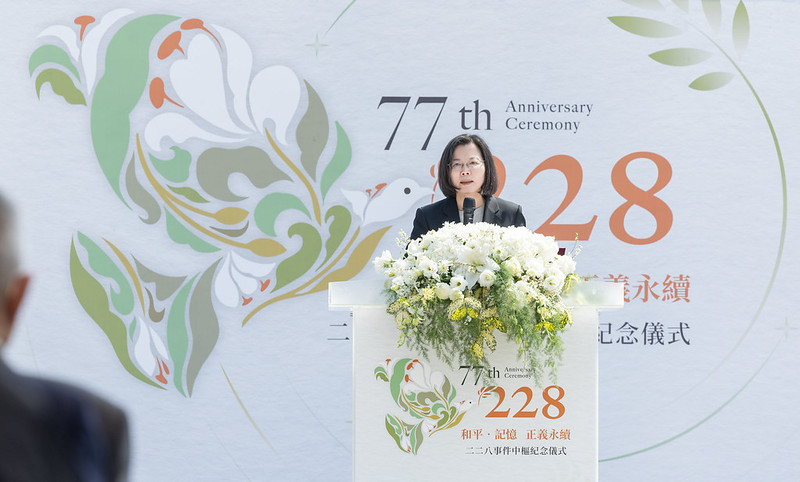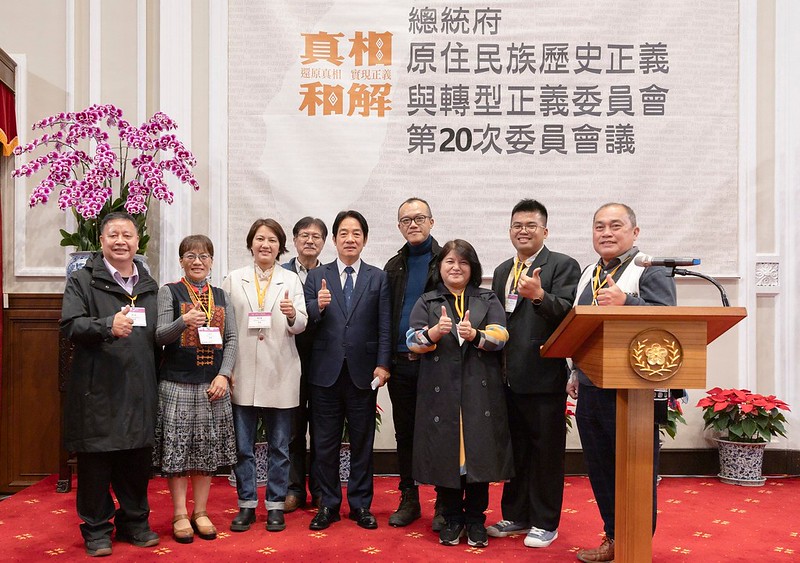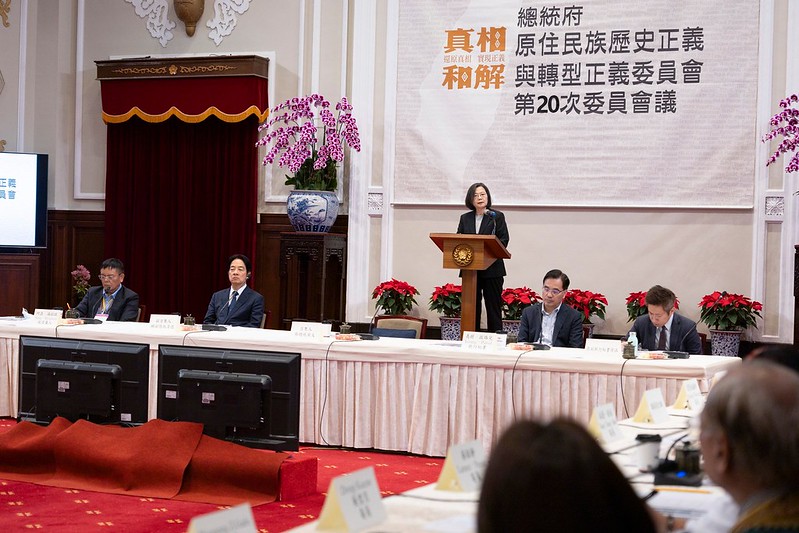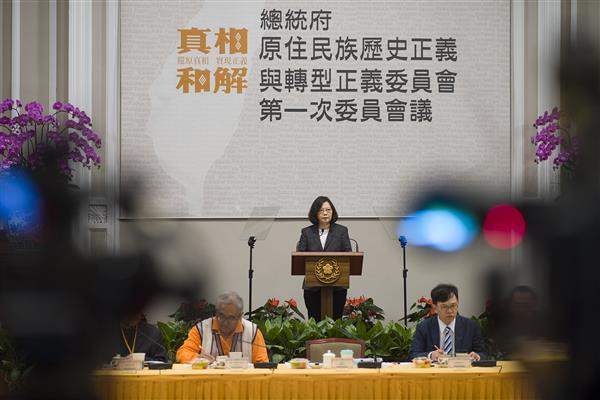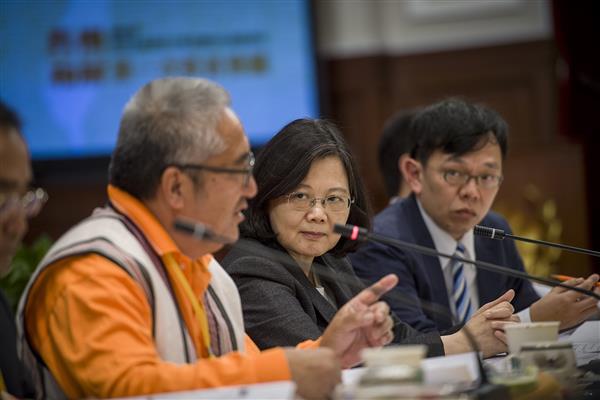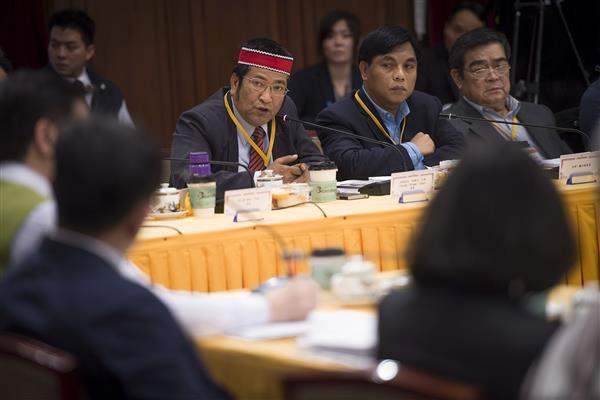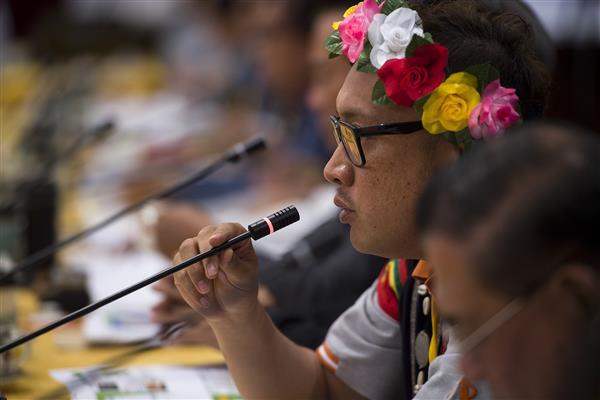News & activities
 News releases
News releases
On the afternoon of March 20, President Tsai Ing-wen presided over a meeting of the Presidential Office Indigenous Historical Justice and Transitional Justice Committee, where she explained the three main goals of the committee—"to clarify historical facts, spur societal communication, and put forward policy proposals"—so that Taiwanese society can move toward reconciliation.
The following is a translation of President Tsai's remarks:
Today we are holding the first meeting of the Presidential Office Indigenous Historical Justice and Transitional Justice Committee. Since the adoption on August 1 last year of the Guidelines for Establishment of the Presidential Office Indigenous Historical Justice and Transitional Justice Committee, each of the indigenous ethnic groups has conducted internal discussions to nominate a representative to the committee, and we've also held a preparatory meeting. And now, at last, we are going to start with formal committee discussions.
The process has indeed taken some time. Some may feel that the committee isn't moving quickly enough, but I want to say to everyone assembled here, and to my colleagues in the government, that transitional justice is a long-term social project, and today we are taking an important step forward.
The goals of the committee are to clarify historical facts, spur societal communication, and then put forward appropriate policy proposals so that Taiwanese society can move toward reconciliation.
The people of each indigenous ethnic group have conducted internal discussions to nominate you, the representatives, to the committee so that you can sit down with the government that I represent for dialogue and discussions. This is all an effort by the indigenous peoples to search for and implement the spirit of self-rule. And indigenous self-government is indeed what many indigenous people have been seeking for a long time now.
Therefore, we have specially invited Associate Professor Awi Mona (蔡志偉) of National Dong Hwa University to take part in this first meeting of the committee, and the Council of Indigenous Peoples is going to present a special report on the proposed Indigenous Peoples Self-Government Act.
I strongly hope that we can hear the views of the indigenous peoples regarding self-governance, and that, after discussion, we can settle upon a future direction for our efforts to promote an act for self-government. I do believe that through this sort of participation the indigenous peoples' goal of self-government can be implemented more effectively and soundly.
In addition, our committee staff have received 26 formal motions. This shows that all the committee members have a very strong sense of mission regarding the workings of the committee, and have worked hard in soliciting views from your communities and fields of expertise. We will deal very prudently with each and every one of the motions.
During today's meeting, we are going to determine how the committee's thematic subcommittees will operate, and if the motions need to be studied in depth to determine the facts at issue, then they can be forwarded to the proper thematic subcommittee for further handling.
However, there are two major issues—one is the delineation of traditional territories, and the other is restoration of the ethnic identity and status of Pingpu ethnic groups—that are far-reaching in impact and have sparked a lot of public discussion. In just a bit, we will need to engage in a very serious exchange of views on these two topics.
I must acknowledge that issues connected with indigenous historical and transitional justice have a very complex past and touch upon disagreements regarding contemporary matters. In fact, there are even conflicts of interest. In addition, there lies a huge gulf between the government's legal system and the traditional cultures of the various indigenous peoples.
That is why even the Council of Indigenous Peoples has not necessarily been able, despite the many efforts it has made within the system, to resolve those problems all at once. And that, in turn, is why we need the committee's dialogue mechanism. We need to tap into our collective wisdom to deal with the challenges facing us.
I want to stress once again that the Presidential Office Indigenous Historical Justice and Transitional Justice Committee is a mechanism for high-level, equal-status dialogue between the government and the indigenous peoples. The dialogue that we engage in here is not meant to replace executive and legislative powers; rather, it is an avenue by which we can, together, find and overcome the historical trauma and work for reconciliation.
In the discussions that will soon be taking place, I would like to ask the committee members representing the various indigenous groups to communicate as best you can the views of your people. I also hope that those who've joined the committee as scholars and experts will actively contribute your professional viewpoints.
Now, let us begin today's proceedings.
After concluding her remarks, President Tsai presented a letter of appointment to Mr. Mateli Sawawan (馬千里), the Puyuma representative in the committee. Everyone then listened to a briefing from Associate Professor Awi Mona of the Graduate Institute of Financial and Economic Law at National Dong Hwa University entitled " Indigenous Peoples Self-Government and State Negotiations: A Comparison of the Experiences of Canada and New Zealand." After that, an official from the Council of Indigenous Peoples presented a briefing entitled "A Report on the Promotion of an Indigenous Peoples Self-Government Act." Participants in the meeting exchanged views following these two briefings.
